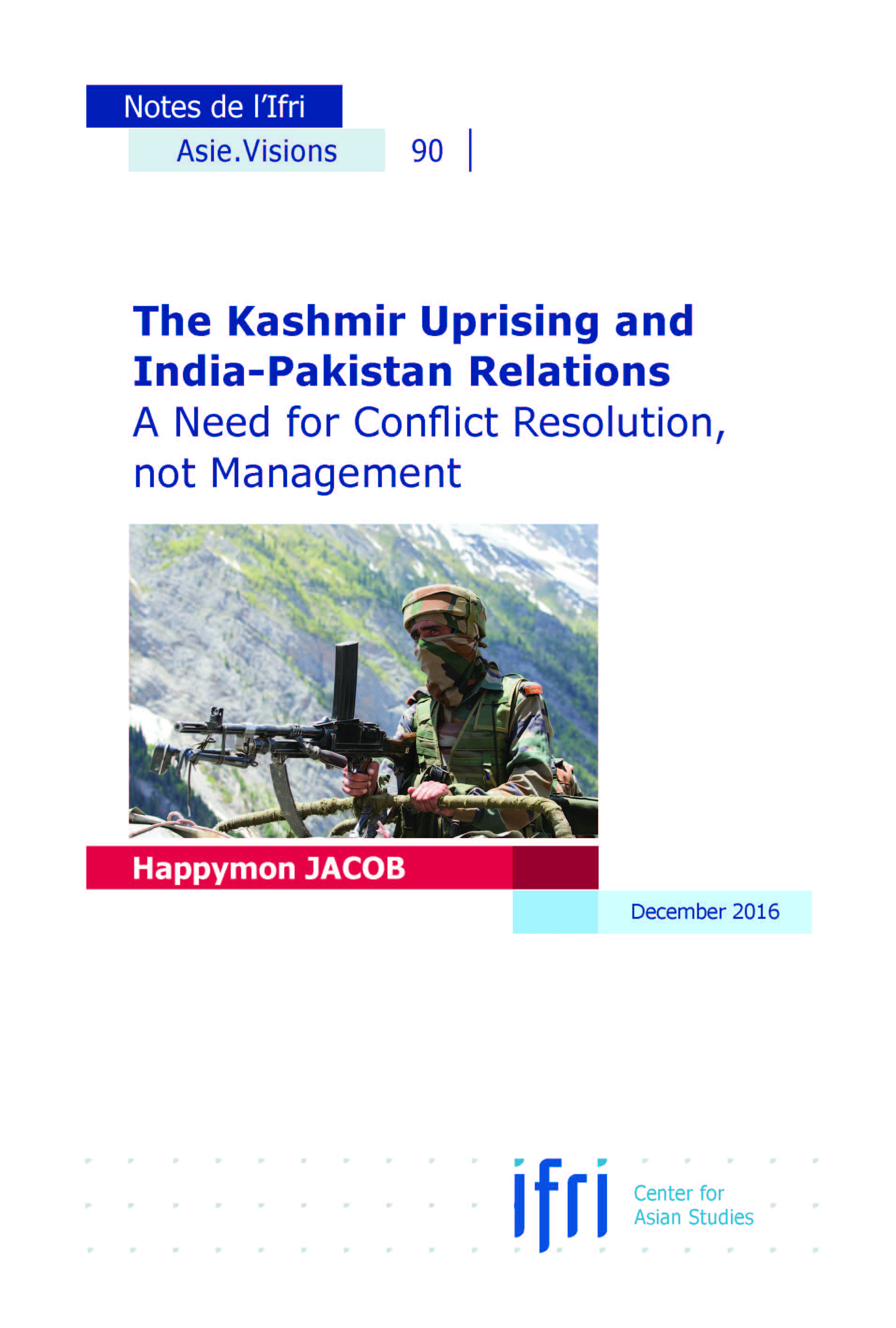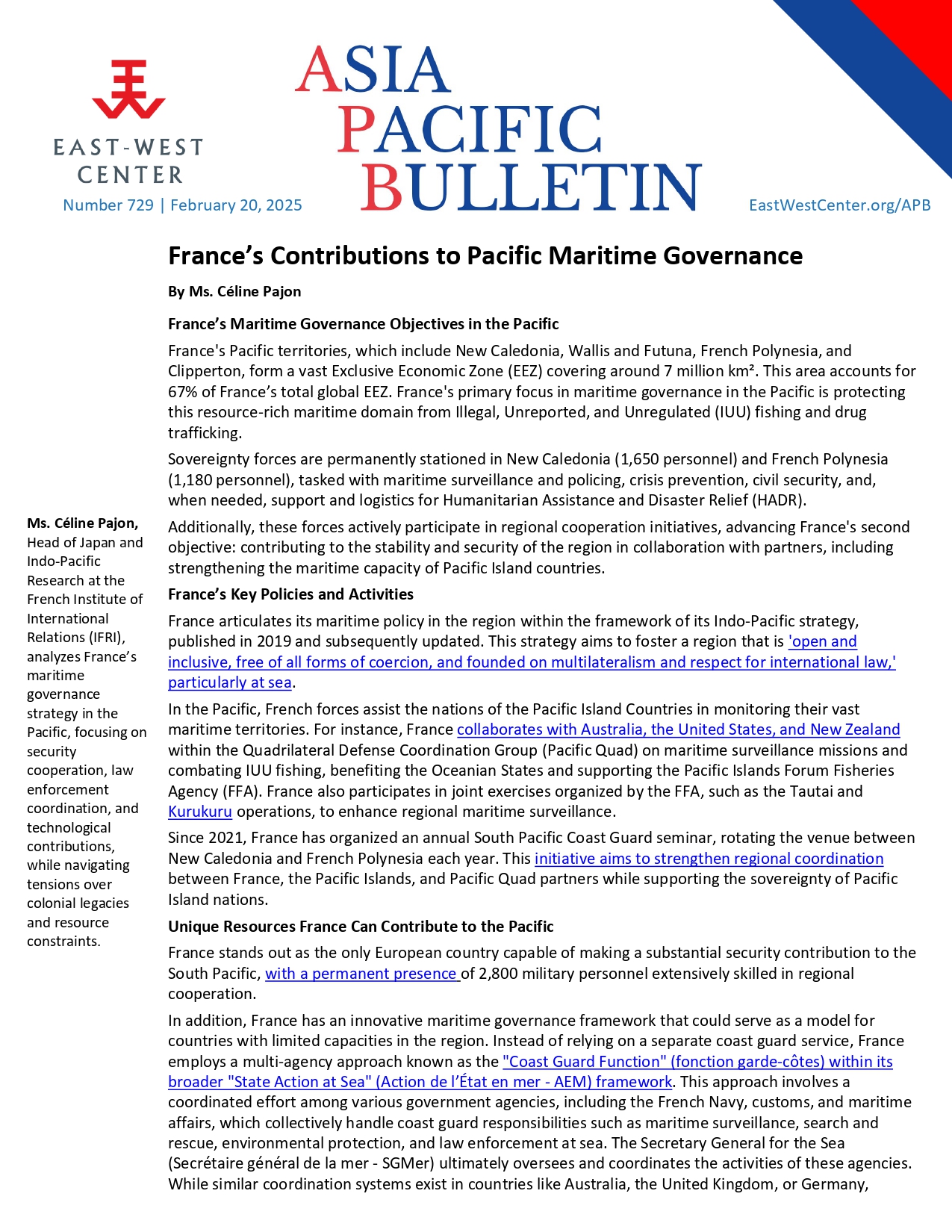The Kashmir Uprising and India-Pakistan Relations: A need for conflict resolution, not management

This paper analyses the causes and consequences of the 2016 uprising in Kashmir, making six interrelated arguments.

First of all, it argues that notwithstanding the fact that India and Pakistan have multiple conflicts to resolve, including the Siachen Glacier, Sir Creek etc., Kashmir continues to be the most significant dispute in so far as it holds the key to a rapprochement between the two South Asian rivals. For instance, during the period when Kashmir was purposefully addressed between the two sides, from 2003 to 2007/8, the relationship improved significantly on other fronts as well.
Second, the direct or indirect complicity of the Pakistani state in the terrorist violence carried out against India is the fundamental reason why the two sides have been unable to make any definitive gains from their bilateral dialogues.
Third, the paper underlines that normalcy in Kashmir can be misleading. The 2008 uprising came as a complete surprise given the fact that the past insurgency had been a failure and India and Pakistan had made positive strides in their relationship. Since 2008, then, it so appears that normalcy – a situation wherein people seemingly go about their daily lives without bothering with overt dissident political activism or protests – is a temporary break between major uprisings. Mistaking such temporary normalcy as an indication of a complete end to the insurgency in the state has proven to be a mistake more than once.
Fourth, this paper argues that the new insurgency in Kashmir that is taking root today is quite dissimilar to the one that began in the late 1980s and tapered off in the mid-1990s. Kashmir today is faced with a new wave of young, educated militants, a large number of whom seem to be driven by religious motivation. This is very different from the 1990s. Moreover, this is an indisputably indigenous movement. It will therefore require extraordinary effort from New Delhi to bring Kashmir back from the brink of another full-blown insurgency.
Fifth, the Kashmir conflict is a political contestation operating at many levels, which should be addressed using both symbolic and substantive responses. One of the reasons why the new BJP-led government in New Delhi has not been able to reach out to the Kashmiri separatists is due to the clash of symbols that drive their respective political positions.
Finally, the electoral dynamics in India have a clear bearing on New Delhi’s ability to resolve the Kashmir conflict. Resolving this conflict in a win-win manner is indeed the correct thing to do from a grand strategic point of view, but it may not necessarily be so from a short-term electoral consideration: the latter seems to inform the BJP’s approach to Kashmir.
Download the full analysis
This page contains only a summary of our work. If you would like to have access to all the information from our research on the subject, you can download the full version in PDF format.
The Kashmir Uprising and India-Pakistan Relations: A need for conflict resolution, not management
Related centers and programs
Discover our other research centers and programsFind out more
Discover all our analysesJammu and Kashmir in the Aftermath of August 2019
The abrogation of Article 370, which granted special status to the state of Jammu and Kashmir (J&K), has been on the agenda of the Bharatiya Janata Party (BJP) for many decades.

France’s Contributions to Pacific Maritime Governance
France stands out as the only European country capable of making a substantial security contribution to the South Pacific, with a permanent presence of 2,800 military personnel extensively skilled in regional cooperation.
Unlocking India’s Energy Transition: Addressing Grid Flexibility Challenges and Solutions
India is rapidly scaling up its renewable energy (RE) capacity, adding 15–20 GW annually, but the ambitious goal of 500 GW of non-fossil capacity by 2030 is at risk unless the pace accelerates.

The China-Russia Partnership and the Ukraine War: Aligned but not allied
China and Russia maintain a strategic partnership rooted in shared opposition to the U.S. and liberal democracies, but their relationship is shaped more by pragmatism than trust.









